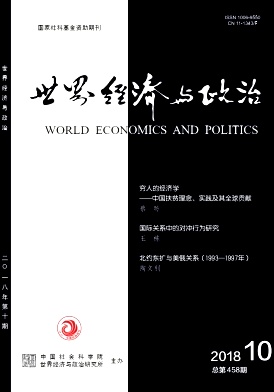
[Author] Wang Dong
[Publisher and date] World Economics and Politics, 2018
[Abstract] With the rapid rise of China, the pattern of China's relations with Asia-Pacific countries is undergoing unprecedented changes. In the face of the uncertainty brought about by China's rise, Asia-Pacific countries are increasingly adopting hedging strategies. Although the concept of "hedging" is often used by policymakers and strategic analysts, the theory of hedging has not yet been fully developed in international relations circles. There are many conceptual problems with the use of the term "hedging" in existing research. In fact, the "theorization" of hedging has not yet been completed in domestic and foreign academia. By drawing on the concept of hedging in finance and its related theories, the authors attempt to construct a universal theory of hedging in international relations. By clarifying the concept of hedging and proposing the core assumptions and variable relationships to explain hedging behavior in international relations, the authors will provide more detailed explanations and predictions on the hedging behavior of Asia-Pacific countries toward China, especially the intensity and specific patterns of hedging, and also provide useful policy insights on how China should handle its neighboring relations in the process of its rapid rise.
